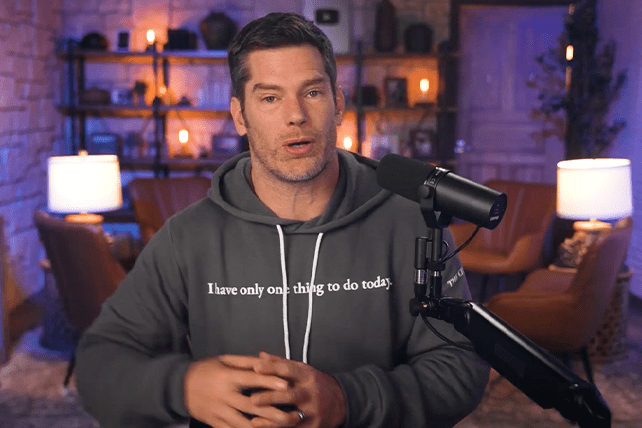“We know they didn’t ultimately understand all of what he was saying, and they certainly didn’t conclude he would be crucified that weekend. And we don’t show that they did,” wrote Jenkins. “But how did they get there, to that place of ignorance or misunderstanding? How did they miss it? Well, we show nuance. We show arguments and rationalizations and confusion and back and forth.”
Jenkins expressed that the writers wanted to “take the time to show” how the disciples’ various reactions to Jesus’ words might have played out. He argued that the 12 apostles “were not a faceless monolith we can claim to know and understand because of a handful of Bible verses. They, like us, were complicated and nuanced.”
Reiterating that the writing team wanted to credibly portray the shift in the Jerusalem crowd’s perception of Jesus from his triumphal entry to his crucifixion—two events separated by less than a week—Jenkins said that the writing team looked “at all of the different factors of that week that led to his crucifixion” and decided to “spotlight and spend some time on the things that are the most clear for the viewer and the most connected to our main characters.”
“And maybe leave out a couple other things that are less clear or would require even more context to understand,” he added.
“Just know that all of the context we write is researched, debated, analyzed by multiple people from multiple perspectives, and ultimately lands in a place we always find ‘plausible,’ even if not provable,” said Jenkins. “So while it’s perfectly fine to disagree or to not like something…don’t assume your perspective or presupposition is necessarily accurate. I certainly don’t assume mine is, and many things I’ve portrayed were different from what I originally assumed.”
RELATED: ‘It’s a Very Beautifully Intense Time’—Abe Bueno-Jallad of ‘The Chosen’ Speaks About Season 6
Season 6 of “The Chosen,” which will depict the crucifixion, is currently in production. Season 5 is available to stream on Prime Video.

